In the United States, opioid addiction levels have reached record highs. More people die today from drug overdoses than they do from HIV, gun violence and motor vehicle accidents.
Thankfully, there are medications available to treat opioid addiction. Suboxone is the most commonly used opioid antagonist. It’s used as replacement therapy to help wean addicts off heroin and other opioids.
Studies have shown that over a 12 week period, 49% of people taking Suboxone reduced or completely eliminated their use of painkillers and other commonly abused drugs.
One commonly asked question is whether those on Suboxone can drink alcohol. Keep reading for the risks of combining Suboxone and alcohol.
What is Suboxone?
Suboxone is a synthetic opioid antagonist and painkiller that is designed to work as replacement therapy in medication assisted treatment to help opiate addicts wean themselves off heroin and other opioids. The two medications in Suboxone are Buprenorphine and Naloxone.
Buprenorphine is a partial opioid antagonist and a painkiller. It is an effective painkiller to help with the withdrawal symptoms experienced by recovering addicts. But it does provide some of the euphoric effects of heroin and other opioid drugs.
Which is why it is necessary to administer Buprenorphine alongside Naloxone. Naloxone is a key ingredient designed to offset the effects of Buprenorphine to keep addicts from abusing Suboxone.
Naloxone works by blocking the opiate receptors in the brain. While also removing any opioids that were already there before treatment.
If someone attempts to abuse Suboxone, which is, of course, a risk when prescribing any prescription drug to an addict, the Naloxone is activated to offset the dangers of potential abuse.
This happens automatically when Suboxone is ground up and is intended to be used in a way that is not prescribed. It can also be used as a standalone medication to treat people who are overdosing from heroin and other opioids.
Many people outside of the healthcare sector are now being trained to administer Naloxone. This is likely due to the current opioid pandemic in North America.
Being trained to administer Naloxone in the case of an overdose can mean saving someone’s life.
Suboxone and Alcohol
Alcohol abuse is another leading cause of death in the United States. Roughly 88,000 people die from causes related to alcohol use in America per year. It’s no surprise that people addicted to heroin and other opioid drugs, also abuse alcohol.
When prescribing Suboxone, doctors urge against drinking alcohol or using any other drugs while taking it. Mixing Suboxone with alcohol can have negative, and even fatal consequences. Especially when combined use is prolonged.
Both alcohol and Suboxone are central nervous system depressants. The use of them together can result in a decreased rate in the firing of the central nervous system’s neurons.
This can cause heart palpitations and increased or decreased blood pressure. Changes in blood pressure can lead to decreased blood flow and tissue and organ damage.
This decrease in the firing of neurons in the central nervous system also causes respiratory suppression. This can lead to headaches, blurred vision, fainting, breathing problems and can even cause serious brain damage.
Other risks of combining Suboxone with alcohol include decreased motor function, altered thinking processes, severe nausea, constipation, dizziness, slurred speech, and increased sweating. It can even lead to a comatose state.
Chronically using Suboxone and alcohol together can increase the risk of various forms of cancer, cardiovascular diseases, a weakened immune system, brain damage, and stroke.
The Nature of Addiction
The reason for taking Suboxone in the first place is because the person is an addict suffering from opioid dependency. Or they might even be close to an overdose.
Addicts often suffer from addiction to various substances, including alcohol. Suboxone mixed with alcohol only increases the chances of becoming dependent on both substances.
People with a history of substance abuse should be extremely careful when drinking alcohol at all. Especially during the recovery process.
Even a small amount of alcohol while taking Suboxone can lead to lethargy, impaired judgment, intense cravings for opioids and unconsciousness. Chronic combined use has severe and even potentially fatal consequences.
Drinking alcohol at any point during the recovery process poses the risk of triggering cravings and lapses in judgment. This impaired judgment can potentially lead to relapse.
Suboxone mixed with alcohol will increase the user’s tolerance and further increase the severity of their addiction to both substances. Drinking while on Suboxone is only going backward and away from your ultimate recovery.
Treatment
If you or a loved one is suffering from opioid or alcohol addiction, treatment is widely available. Inpatient drug rehab centers are recommended especially for people in the late stages of addiction.
Replacement therapy drugs like Suboxone combined with behavioral cognitive therapy and positive reinforcement will significantly increase a person’s chances to overcome addiction and achieve long lasting sobriety.
Often, addicts have to cut out all substances including alcohol. There should be no circumstance where a person is drinking alcohol while taking Suboxone in a supervised, rehabilitative environment.
The danger of prescribing Suboxone to outpatients is that other drugs and alcohol are easily accessible and can be incredibly tempting for an addict.
Inpatient rehab centers will help to avoid these risks and supervise the recovery process from beginning to end.
The Bottom Line
So, is it safe to mix Suboxone and alcohol? The answer is an emphatic no. All doctors and medical professionals advise against mixing Suboxone with alcohol or any other drug.
Doing so can have severely detrimental and even fatal consequences. Consequences include permanent brain damage, comatose states and in extreme cases, even death.
Even a tiny amount of alcohol when taking Suboxone can lead to extreme drowsiness and impaired judgment. This can cause you to make bad decisions and act in a dangerous manner.
Mixing Suboxone with alcohol also heightens the risk of increasing the body’s tolerance and dependency on both substances. It will only hinder the recovery process, trigger cravings and increase the chances of relapse.
Taking all of this into consideration, it’s wise to cut out alcohol completely during and after the recovery process. Visit our blog for more tips and advice on how to recover from alcohol and opioid addiction and get the help you need.


